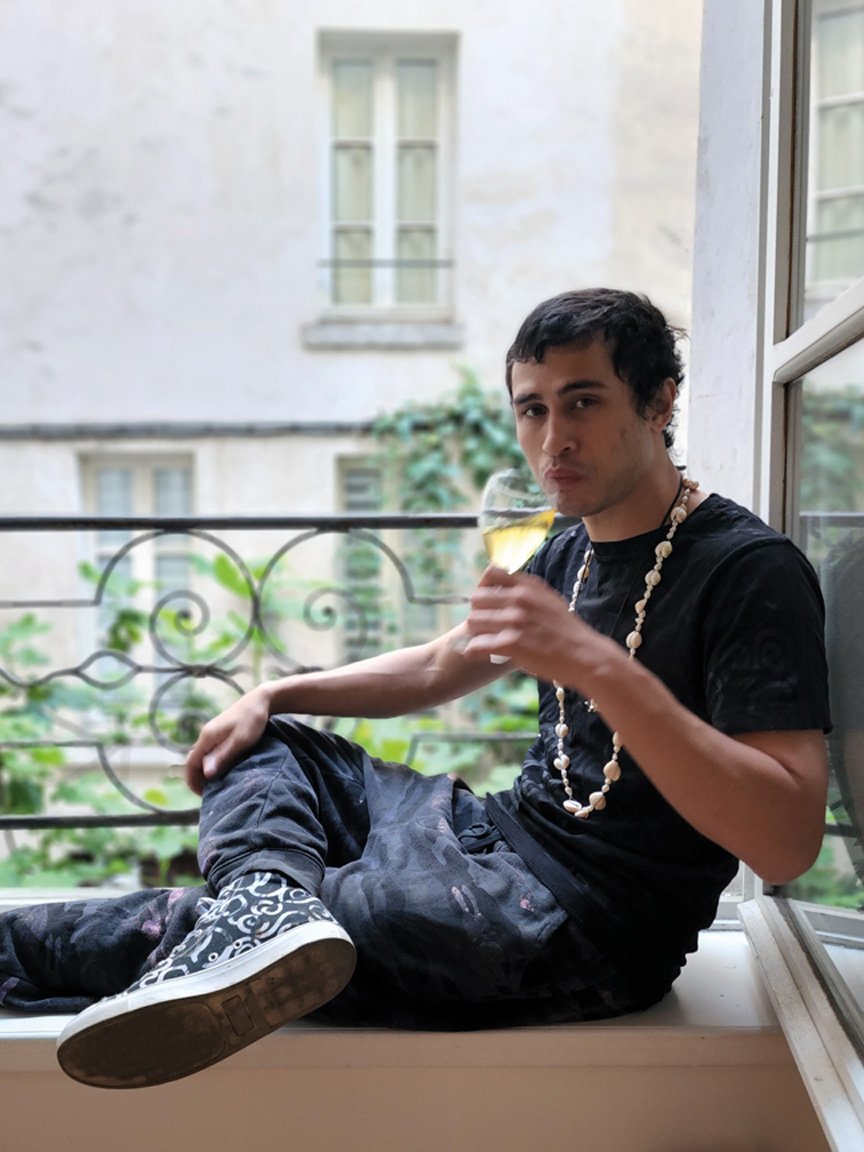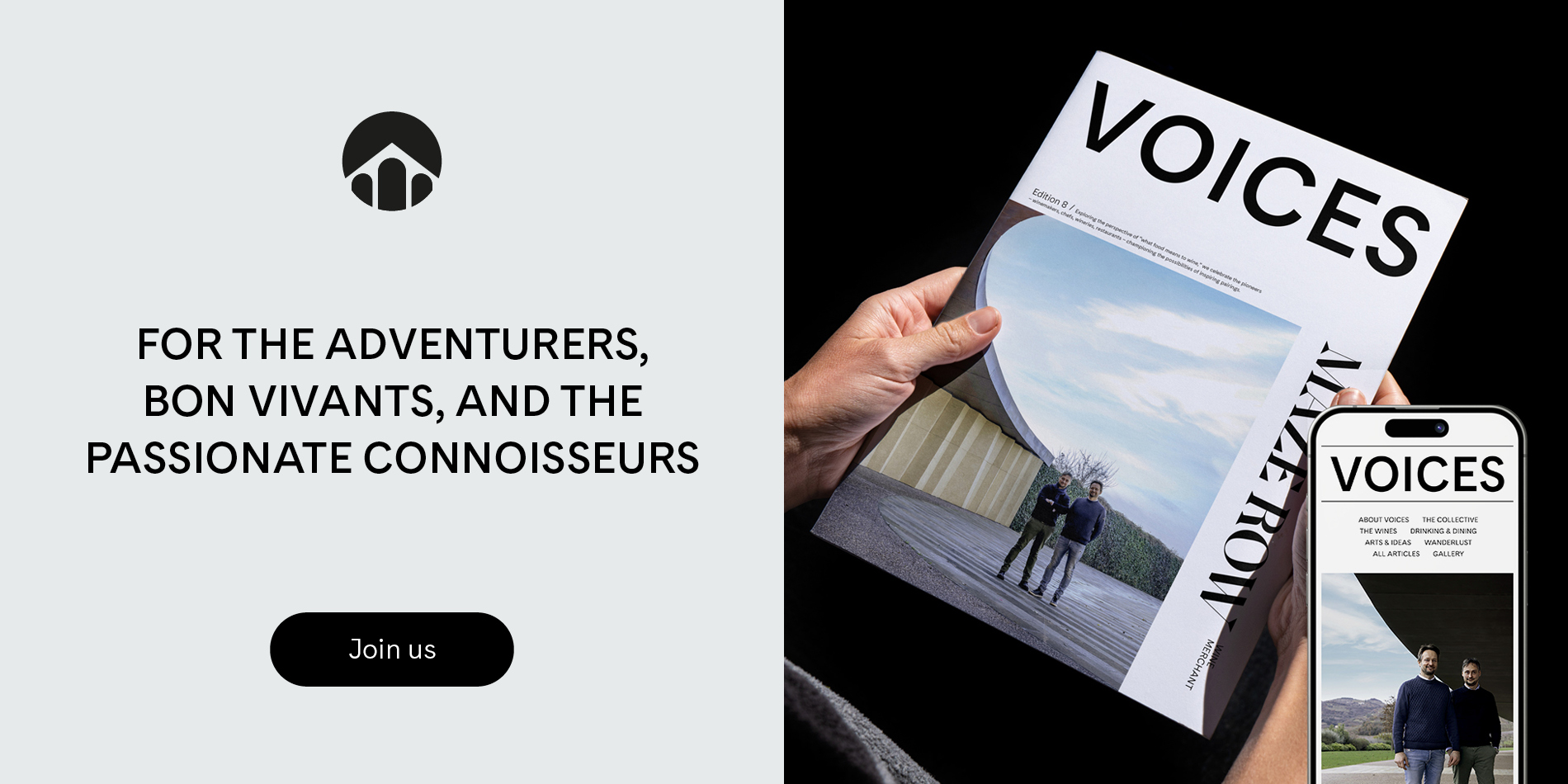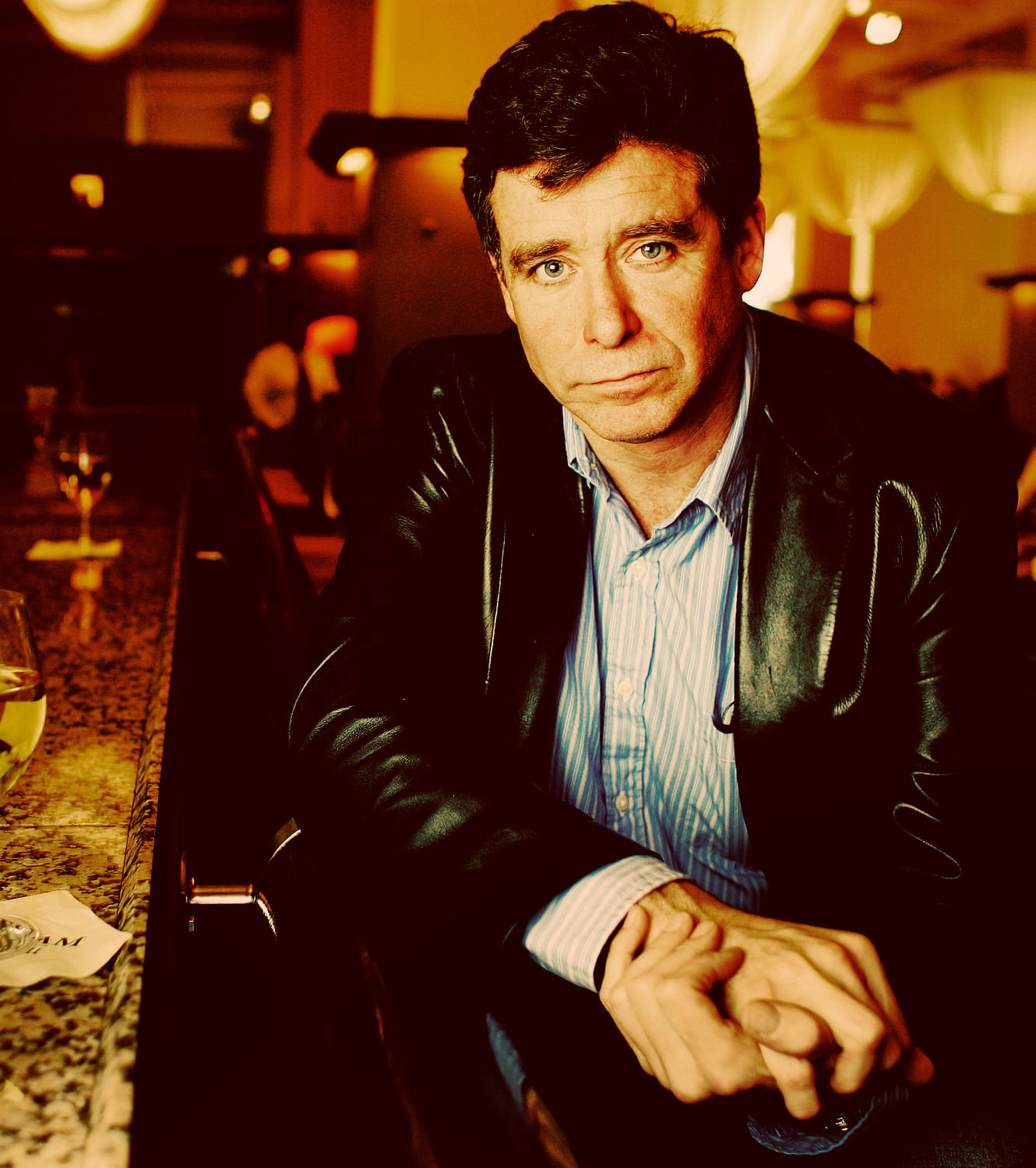
FIELD NOTES
MJ Towler meets underground music producer and Riesling aficionado Skinny Pablo to see how his debut vinyl album Paris Mosel brings wine and terroir into play
Making wine and music involves a combination of art and science. In both cases, the process requires a great deal of skill and knowledge, often involving specialized tools and equipment to achieve the desired result. There is something else though. Something that is both tangible and intangible. In wine, we call it terroir. In music, it’s the recording studio.
The Foo Fighters first explored this connection with their highly acclaimed 2014 album and eight-part mini-series Sonic Highways. For the project, the band recorded in eight iconic US studios around the country, visiting town after town and taking in the “terroir,” then writing and recording a song, before moving on to the next city.
Skinny Pablo is breaking similar ground with his debut vinyl album Paris Mosel. This is music inspired by terroir, in this case the urban fabric of Paris and the Mosel’s ancient vineyards.
I am meeting Skinny on the heels of the album’s release to understand his creative process.
Hailing from Guam and based in Long Beach, California, John Phillips, aka Skinny Pablo, is an underground music producer, Riesling aficionado and self-described disruptive child of the avant-garde. Skinny tells me the first half of the album was recorded electronically utilizing samples. It’s his musical interpretation of Paris – inspired by the cuisine, fueled by croissants, and an ode to the streets of this artists’ mecca with his musical journey finding its way through La Bastille, Montmartre and Pigalle as well as hip eateries Les Enfants du Marché and El Nopal.
The second half of the album was made in Mosel – the mystical and rugged winemaking land in Germany with century-old vineyards. This is the home of Ulli Stein, the revered winemaker celebrated for making Rieslings of distinct character. Stein lives in Alfer Hölle, initially constructed as a hotel in the late 1800s, where in the dining hall sits a grand piano overlooking the Mosel river. Here, Skinny composed and recorded the piano portions of Paris Mosel during the harvest of 2022. And it became a musical diary of his time at Alfer Hölle, Sankt Aldegund and Bullay.
Process is critical to the creation of Paris Mosel. Skinny talks of the acquisition of a device called the T560 Vinyl Recorder. “It’s made in Germany, and you can’t just buy a machine,” he tells me clearly enamored by the musical equipment. “You have to fly there and be trained by its creator.” The T560’s inventor is audio engineer Ulrich Sourisseau, whom Skinny describes as a “mad scientist” living in this small town near the Swiss border.
Skinny had been awestruck by the recorder when he had encountered it six years ago since it had been his lifelong dream to make a record. He says his first thoughts were: “I can make my records!? I mean, digital’s cool. Tapes are pretty dope, but, you know, the dream is to have a vinyl record, just like everybody else back in the day.” After 18 hours of continuous training in a tiny shed, Skinny learnt to operate his T560. It’s what he’s using to press the vinyls for Paris Mosel.
“You take what you have to work with and then add your own texture and style – the same way a winemaker works with the terroir and creates their unique spin on things”
LEFT, SKINNY PABLO ENJOYING A GLASS OF WINE IN PARIS, RIGHT, HIS PARIS MOSEL ALBUM COVER FEATURING A COMBINATION OF IMAGES OF PARIS AND MOSEL. EACH COVER IS INDIVIDUALLY HAND-DRAWN IN PEN AND INK BY THE ARTIST ©Skinny Pablo
FROM MOSEL TO PARIS
The Paris Mosel project has its genesis in gratitude and collaboration. Skinny narrates the story. He had been invited to the Mosel by the wine and vinyl collector Robert Dentice (aka Soilpimp) and Stephen Bitterolf, owner of Vom Boden Imports. It was Dentice’s way of thanking Skinny for all he has contributed to the Riesling Study community. Conceived in 2020, the project began as a way to articulate the nuance and diversity of Riesling. Now it includes other German wines having grown organically into a community of creatives with site-specific events bringing together food, wine and music.
Following two weeks of touring the vineyards of the Mosel and meeting the producers, the group celebrated at Ulli Stein’s Alfer Hölle. Skinny says he was blown away by the place and was psyched to play some beats. Dentice asked Skinny how he would like to return during harvest and write a record? “We’ll talk to Ulli about it, you can stay here,” he said. “While they’re harvesting grapes, you’re writing music. How do you feel about that?” Skinny’s reply was a resounding yes.
While waiting for the harvest season to start, Skinny decided to take a break and make his way by train to Paris. “I’m spontaneously in Paris, and it’s such an inspiring city for art,” he recalls. “So I said: okay I’ll do Paris Mosel. It’s going to be a musical diary of this kid from Guam flying into the Mosel drinking a bunch of wine, then going to Paris, eating, drinking. and instead of writing words, I am going to make music.”
In Paris, Skinny set up a crowdfunding campaign and made beats all day, every day. He had brought along a small sampler called the Octatrack, and the entire album was made using his phone and the sampler. He didn’t even have a laptop with him. He rented a studio and recorded drum tracks – something he had never done before. It was here that he began developing the record in his mind, working tirelessly until his return to the Mosel.
Once back in Germany, his frenetic pace continued. Skinny made beats morning, noon and night, composing them on the piano at Stein’s house. He drew inspiration from the treacherously steep terraced vineyards, ancient mineral-rich limestone soils, and 70 to 120-year-old gnarled vines that made him think about the texture of his music.
A lover of dub music, Skinny saw parallels in the terroir of the Mosel. The rugged terrain reminded him of the low-fidelity, dirty and dusty sounds of old-school Jamaican dub in the style produced by the legendary Lee Scratch Perry. In 2020 Skinny had fulfilled another lifelong dream when he had collaborated with Perry on his single “Rain Inna Babylon.” Says Skinny: “You take what you have to work with and then add your own texture and style – the same way a winemaker works with the terroir and creates their unique spin on things.”
Other than his sampler, for Paris Mosel Skinny used a drum set and a piano. He took the two recordings using two entirely acoustic instruments, both percussive, with no amplification. He combined them in the way a winemaker would using different lots from specific vineyard parcels. Skinny describes the beats from Paris as a bit more refined and processed, whereas the piano and the Mosel were a little edgier. He combined the two to create new recordings.
Stein had compared Skinny’s music-making process to Naturwein, or natural wine, made with minimal intervention by the winemaker. Skinny concurs, saying his recording style’s minimal use of electronics mirrored this idea of minimal intervention.
Finally, to pay homage to his time in the Mosel, Skinny included a transcription of “Mosel Weinlied” with the LP. According to local folklore, the song was awarded a Fuder (1,000 liters) of the finest Riesling for winning the 1864 Traben-Trabach Casino songwriting contest.
Skinny describes Paris Mosel as stuff that many people have never really heard with influences from his favorite musical genres: dub, hip hop and electronic psychedelic styles. And because of the terroir, he’s created a special “blend” for the album.
Through his music he hopes to shed light on great Rieslings and a good life of pairing music with it. Ultimately he wants to inspire, to get his listeners in the mood to drink a great bottle of wine, enjoy delicious food with good friends, and have a great time.
When grapes are planted somewhere new, they will give a different interpretation of a wine. An artist, in this case, a music producer from Guam, can also create differently in a new setting. When the environment becomes the muse, something completely different emerges.
My conversation with Skinny Pablo makes me think of the rapper Rakim’s lyrics, “It ain’t where you’re from; it’s where you’re at”.
The Paris Mosel vinyl was released on December 24, 2022. Each cover design of the first run of the physical LP is one-of-a-kind, hand-drawn in pen and ink by Skinny Pablo.
MJ Towler is the founder of The Black Wine Guy Experience podcast.
We recommend
CALLING THE TUNES WITH MJ TOWLER
His cutting-edge podcast is a departure from traditional wine industry culture, but MJ Towler is boldly thrusting forward. VOICES sits down with the renegade host for an in-depth perspective
BRIGHT WINES, BIG CITY
Jordan Mackay meets Jay McInerney for dinner to retrace his journey from literary sensation to leading wine columnist, sampling some fine bottles along the way
THE ARCHITECTURE OF WINERIES
Can architecture fundamentally alter our wine experience? Some of the world’s finest wineries believe that building design can, as Jonathan Bell takes a tour
WHERE THE ART IS
Do unusual venues and experimental curations set culture free to be explored in new and exciting ways, and by a wider public? Nargess Banks investigates






